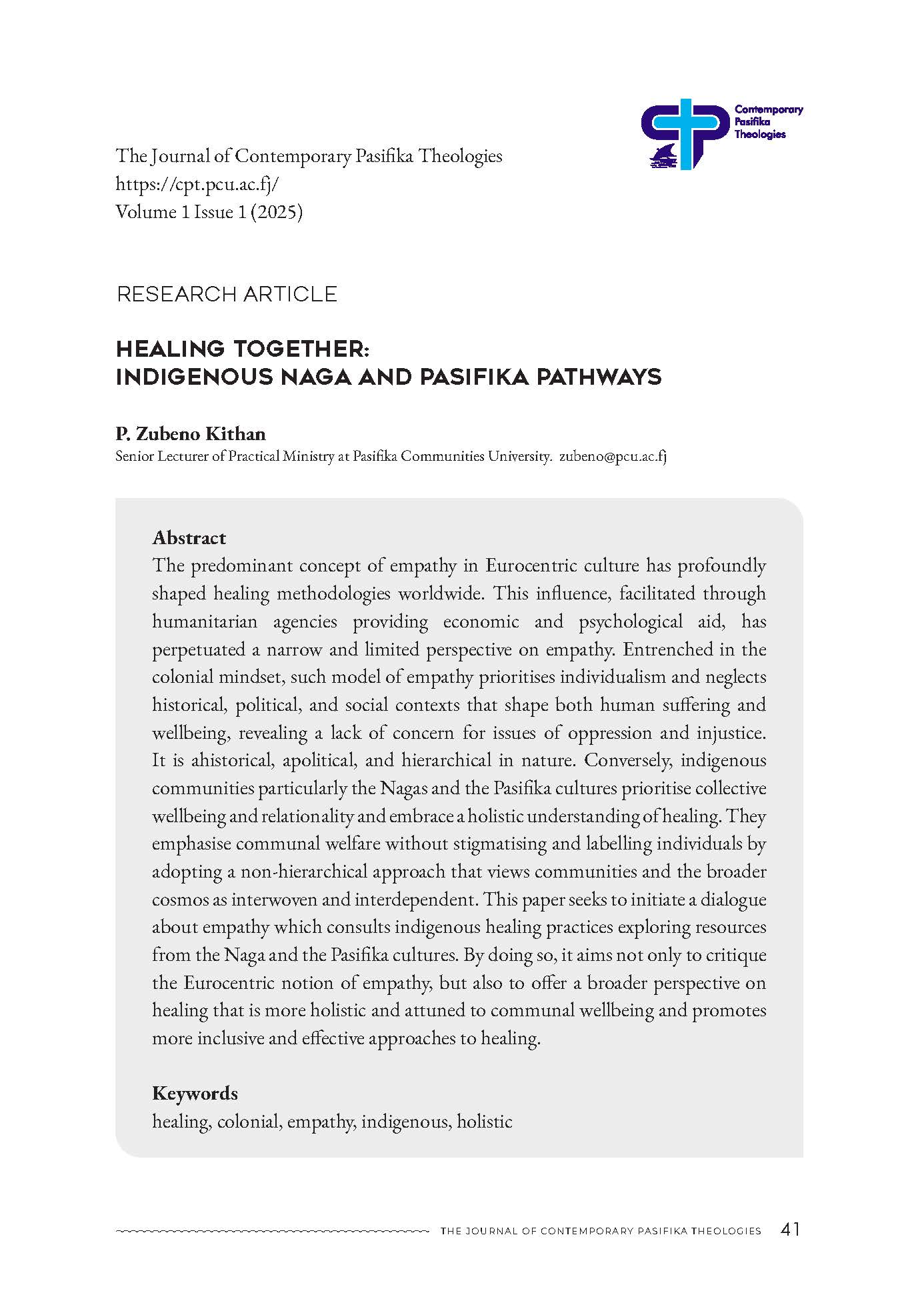Healing Together
Indigenous Naga and Pasifika Pathways
DOI:
https://doi.org/10.82025/cpt.v1i1.487Keywords:
healing, colonial, empathy, indigenous, holisticAbstract
The predominant concept of empathy in Eurocentric culture has profoundly shaped healing methodologies worldwide. This influence, facilitated through humanitarian agencies providing economic and psychological aid, has perpetuated a narrow and limited perspective on empathy. Entrenched in the colonial mindset, such model of empathy prioritises individualism and neglects historical, political, and social contexts that shape both human suffering and wellbeing, revealing a lack of concern for issues of oppression and injustice. It is ahistorical, apolitical, and hierarchical in nature. Conversely, indigenous communities particularly the Nagas and the Pasifika cultures prioritise collective wellbeing and relationality and embrace a holistic understanding of healing. They emphasise communal welfare without stigmatising and labelling individuals by adopting a non-hierarchical approach that views communities and the broader cosmos as interwoven and interdependent. This paper seeks to initiate a dialogue about empathy which consults indigenous healing practices exploring resources from the Naga and the Pasifika cultures. By doing so, it aims not only to critique the Eurocentric notion of empathy, but also to offer a broader perspective on healing that is more holistic and attuned to communal wellbeing and promotes more inclusive and effective approaches to healing.

Downloads
Published
How to Cite
Issue
Section
License

This work is licensed under a Creative Commons Attribution-NonCommercial 4.0 International License.
